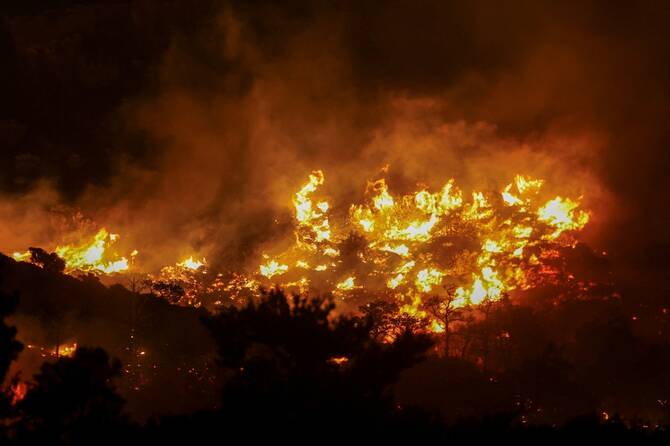Devastating Wildfires in Crete, Greece: A 2023 Overview

Introduction
The recent wildfires in Crete, Greece, have garnered significant attention following their devastating effects on the region’s landscape and communities. With climate change exacerbating adverse weather conditions, the wildfires serve as a stark reminder of the vulnerabilities faced by Mediterranean regions during the summer months. Understanding the causes and consequences of these wildfires is crucial for future preparedness and conservation efforts.
Details of the Wildfires
In early September 2023, Crete experienced a series of wildfires that rapidly spread across the island, primarily affecting the regions of Rethymno and Chania. Authorities were alerted on September 3 after reports of multiple blazes ignited by dry conditions and high winds. Firefighting crews, which included land and aerial support, worked tirelessly to contain the flames; however, the fires burned through thousands of acres of forest, agricultural land, and wildlife habitat.
The most significant fire was reported near the village of Anogeia, where residents were forced to evacuate due to the flames’ proximity. Emergency services collaborated with local municipalities in coordinated efforts to create firebreaks and protect populated areas. Over 2,000 people were evacuated from several communities as a precaution. Tragically, the fires led to the destruction of numerous homes and businesses, leaving many families in need of assistance.
Impact on Local Communities
The aftermath of the wildfires has left a lasting impact on the local economy and environment. Tourism, a vital component of Crete’s economy, may be affected in the coming months as potential visitors express concerns about safety and accessibility. According to the local tourism board, Crete was expecting a bumper season in 2023, and the wildfires threaten to undermine these economic gains.
Environmentalists warn that the ecological damage may take years to heal. Critical habitats for endemic species have been ravaged, which raises alarm over biodiversity loss. As restoration efforts commence, local and international organisations are mobilising resources to rehabilitate affected areas and support displaced residents.
Conclusion
While the wildfires in Crete highlight the urgent issues surrounding climate resilience and disaster preparedness, they also pave the way for crucial discussions about responsible land management and emergency response systems. As Greece enters the recovery phase, it is vital for both government and local communities to ensure adequate support systems are in place to manage crises effectively. Looking forward, enhanced environmental policies and better resources could mitigate the risks posed by future wildfires in this beautiful yet vulnerable Mediterranean island.









